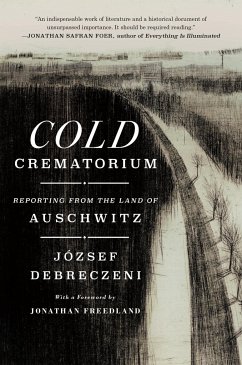The first English language edition of a lost memoir by a Holocaust survivor, offering a shocking and deeply moving perspective on life within the camps-with a foreword by Jonathan Freedland. József Debreczeni, a prolific Hungarian-language journalist and poet, arrived in Auschwitz in 1944; had he been selected to go "left," his life expectancy would have been approximately forty-five minutes. One of the "lucky" ones, he was sent to the "right," which led to twelve horrifying months of incarceration and slave labor in a series of camps, ending in the "Cold Crematorium"-the so-called hospital of the forced labor camp Dörnhau, where prisoners too weak to work awaited execution. But as Soviet and Allied troops closed in on the camps, local Nazi commanders-anxious about the possible consequences of outright murder-decided to leave the remaining prisoners to die in droves rather than sending them directly to the gas chambers. Debreczeni recorded his experiences in Cold Crematorium, one of the harshest, most merciless indictments of Nazism ever written. This haunting memoir, rendered in the precise and unsentimental style of an accomplished journalist, is an eyewitness account of incomparable literary quality. The subject matter is intrinsically tragic, yet the author's evocative prose, sometimes using irony, sarcasm, and even acerbic humor, compels the reader to imagine human beings in circumstances impossible to comprehend intellectually. First published in Hungarian in 1950, it was never translated into a world language due to McCarthyism, Cold War hostilities and antisemitism. More than 70 years later, this masterpiece that was nearly lost to time will be available in 15 languages, finally taking its rightful place among the greatest works of Holocaust literature.









